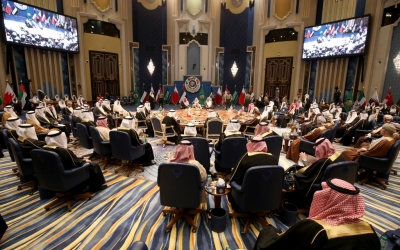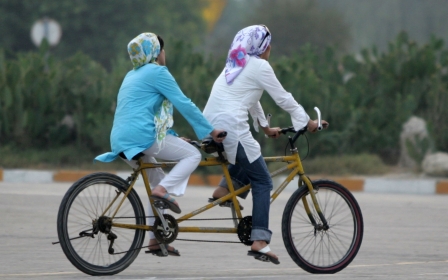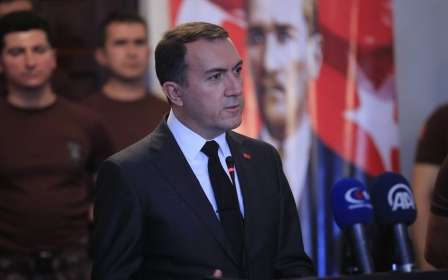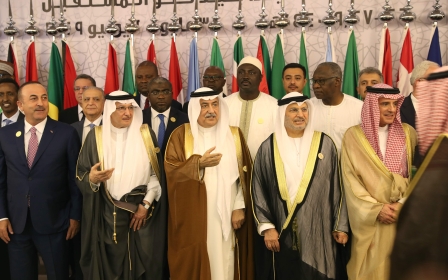Emergency summit: Saudi king issues warning against arch-rival Iran
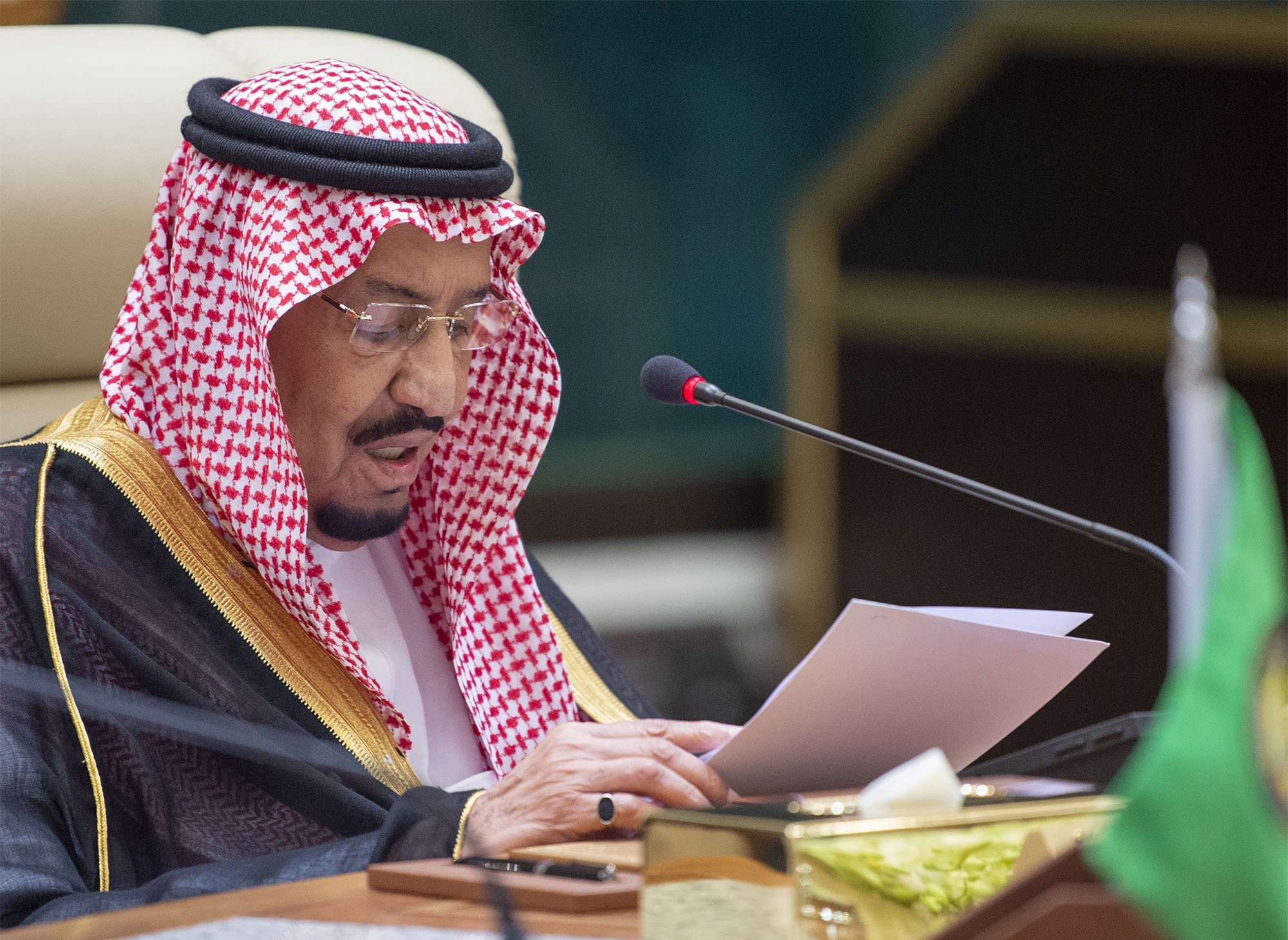
Saudi Arabia's King Salman told an emergency Arab summit that decisive action is required to halt "escalations" in the region following attacks on Gulf oil assets.
The regional Gulf Cooperation Council and the Arab League met on Thursday in Mecca to discuss escalating tensions and military actions in the Gulf.
"The absence of a firm deterrent stance against Iranian behaviour is what led to the escalation we see today," King Salman said.
"The Iranian regime's interference in the internal affairs of the countries of the region, development of nuclear and missile programmes, and its threats to freedom of international shipping are a threat to global oil supply," Salman added.
A separate communique issued after the wider summit supported the rights of Saudi Arabia and the United Arab Emirates to defend their interests after attacks on oil pumping stations in the kingdom and tankers off the UAE.
New MEE newsletter: Jerusalem Dispatch
Sign up to get the latest insights and analysis on Israel-Palestine, alongside Turkey Unpacked and other MEE newsletters
Iran on Friday rejected what it called the "baseless" accusations made at the summit, saying Saudi Arabia had joined the US and Israel in a "hopeless" effort to mobilise regional opinion against Tehran, state media reported.
"Foreign Ministry spokesman Abbas Mousavi... rejected the baseless accusations by the heads of certain Arab countries... and said 'We see the Saudi effort to mobilise [regional] opinion as part of the hopeless process followed by America and the Zionist regime against Iran'," state news agency IRNA said.
In a sign of the complex regional tensions, Iraq, which has good ties with both neighbouring Iran and the US, said it objected to the summit's communique, which stated that any cooperation with Tehran should be based on "non-interference in other countries".
Iraqi President Barham Salih, asking the gathering to support his country's stability, said that rising tensions with Iran could spark a war if not managed well and voiced hope that Iran's security would not be targeted.
US accuses Iran
In mid-May, four ships, including two Saudi oil tankers, were damaged in what was described as a "sabotage" attack off the coast of Fujairah in the United Arab Emirates.
Gulf states have a joint defence force under the Gulf Cooperation Council (GCC), but the alliance has been fractured by a boycott imposed on Qatar by Saudi Arabia, the UAE, Bahrain and non-GCC Egypt since mid-2017.
Qatari premier Abdullah bin Nasser Al Thani, whose country hosts the largest US military base in the region, attended the summits, the most senior Qatari official to visit the kingdom since the embargo.
Both Riyadh and Abu Dhabi have said they do not want war.
US Secretary of State Mike Pompeo said on Thursday that the attacks on the four vessels near a major bunkering hub, just outside the Strait of Hormuz, were "efforts by Iranians to raise the price of crude oil around the world."
The US has not presented evidence that Iran played a role in the oil tanker attacks and Tehran has denied involvement.
US National Security Adviser John Bolton said on Thursday that evidence of Iran being behind the tanker attacks would be presented to the UN Security Council as early as next week.
Pompeo cited the recent tensions with Iran to justify last week pushing through an $8bn weapons deal with Saudi Arabia and the United Arab Emirates without congressional oversight.
Critics have rejected that justification, noting mounting scepticism towards the Trump administration's claims of an imminent Iranian threat in the Middle East.
Tehran has said it will defend itself against any military or economic aggression.
Egyptian President Abdel Fattah al-Sisi told the summit that this month's attacks provided an impetus to renew discussions on joint Arab defence mechanisms.
The US and the UAE, which hosts an American air base, on Wednesday activated a defence cooperation agreement signed earlier this year.
Middle East Eye delivers independent and unrivalled coverage and analysis of the Middle East, North Africa and beyond. To learn more about republishing this content and the associated fees, please fill out this form. More about MEE can be found here.


